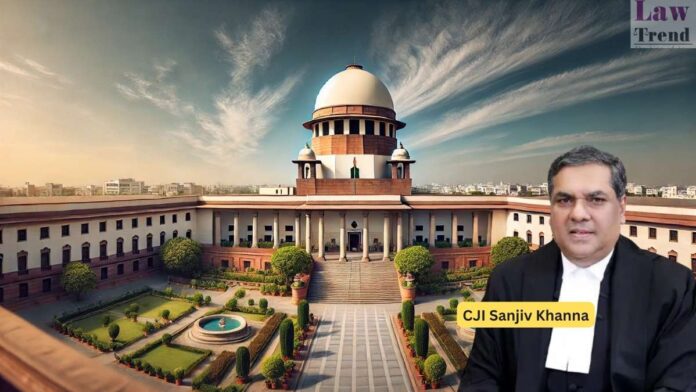The Supreme Court on Wednesday strongly responded to an argument made by the Union government in support of appointing non-Muslim members to the Waqf Boards, stating that if such logic were applied broadly, Hindu judges would be considered unfit to hear Waqf-related matters.
A bench comprising Chief Justice of India Sanjiv Khanna, Justice Sanjay Kumar, and Justice K.V. Viswanathan was hearing petitions challenging provisions of the Waqf (Amendment) Act, 2025, which allow the inclusion of non-Muslims in the Central Waqf Council and State Waqf Boards.
Chief Justice Khanna sharply questioned the government’s position:
“Are you suggesting that minorities, including Muslims, should also be appointed to boards managing Hindu religious institutions? Please say it clearly if that is your stand.”
Centre’s Argument and the Court’s Rebuttal
Solicitor General Tushar Mehta, representing the Union government, defended the provision, arguing that the inclusion of non-Muslim members is limited in scope and does not undermine the fundamentally Muslim character of Waqf bodies.
He further submitted that if objections to non-Muslim participation were taken to their logical extreme, then the current bench itself—comprising Hindu judges—would be “ineligible” to hear the case.
“If that logic is extended,” Mehta said, “then even this Hon’ble Bench may not be competent to hear the matter.”
To this, Chief Justice Khanna offered a firm response, emphasizing the judiciary’s impartiality and secular character:
“No, I’m sorry, Mr. Mehta. We are not talking just about adjudication. When we sit here, we no longer remain adherents of any religion. We are completely secular. For us, both sides are equal.”
Constitutional Concerns Over Waqf Amendments
The petitions before the Court raise constitutional questions over whether the inclusion of non-Muslim members in Waqf bodies infringes on the rights of the Muslim community to manage their own religious affairs, as guaranteed under Article 26 of the Constitution.
Wednesday’s hearing was part of a broader judicial examination of the 2025 amendments, particularly those concerning:
- Inclusion of non-Muslim members in Waqf Boards
- Empowerment of District Collectors in Waqf property disputes
- Removal of the clause recognizing “Waqf by user”
The matter remains pending, and further hearings are expected to delve deeper into these issues. The Supreme Court has not yet passed any interim order, but its oral remarks signal heightened judicial scrutiny of the recent legislative changes.




